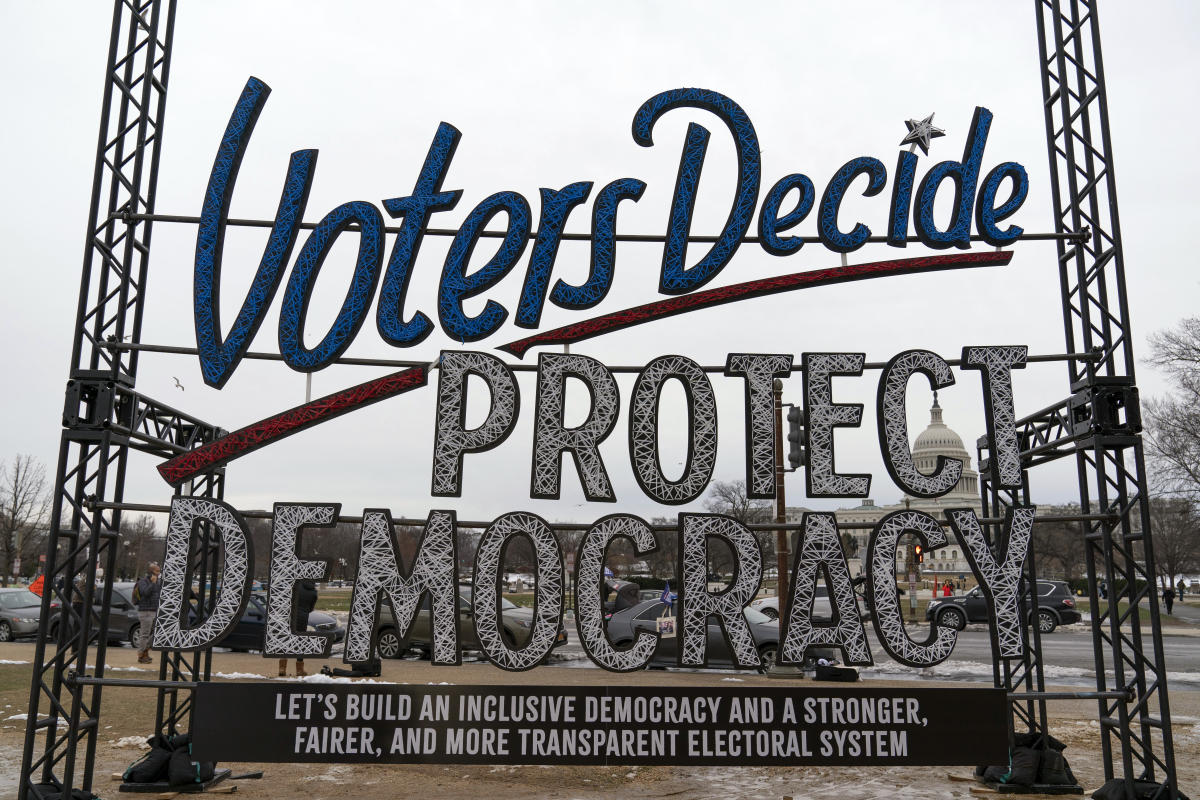In a recent incident, the husband of former House Speaker Nancy Pelosi was attacked by a man who was reportedly influenced by right-wing conspiracy theories leading up to a midterm election. With the upcoming presidential campaign in 2024, experts anticipate the threat of politically motivated violence to rise significantly. This is further fueled by conspiracy theories that have demonized Donald Trump’s opponents, morphing and spreading as the potential 2024 Republican nominee gears up for the presidential bid.
Research fellow Jacob Ware, whose focus is domestic terrorism, states that these once-fringe conspiracy theories are now infiltrating American society at an unprecedented level. The assailant, David DePape, was convicted for the attack on Paul Pelosi. DePape had aligned himself with the QAnon conspiracy theory and planned to hold Nancy Pelosi captive, threatening violence if she refused to respond to his questions about government corruption. Pelosi was fortunately in Washington when the assault took place.
QAnon has become a significant factor in Republican politics, promoted by President Trump and linked to widespread violent incidents, notably the 2021 Capitol riot. Similarly, former conspiracy theories such as “Pizzagate” have fueled a radical narrative, spawning extensive online propaganda aimed at inciting violence.
With the 2020 election loss, QAnon’s influence persists, feeding off other conspiracies and fabricating its own prophecies that remain unfulfilled. Security experts are concerned about the connection between conspiracy theories and extremist behavior, which has grown over the years and mobilized many individuals to radicalize and commit crimes in the name of these delusional beliefs.
DePape testified that his descent into such conspiracy theories began with GamerGate, an online harassment campaign targeting women in the video game industry. Similarly, political extremist Brianna Wu linked GamerGate to the recent politically motivated attack and argues for a necessary policy response to address the broader issue of online radicalization.
Experts assert that content moderation on social media platforms must be improved, and the spread of false and harmful information needs to be curbed. Furthermore, the appeal of conspiracy theories necessitates a strong support system that can recognize signs of radicalization and intervene before an individual is compelled to commit acts of violence.
As the 2024 election approaches and with the possibility of Donald Trump’s return to the political spotlight, the escalation of radical rhetoric could have far-reaching repercussions. Experts emphasize the need to dial down the intensity of political discourse and monitor individuals who may be at risk of falling victim to extreme ideologies.
To counter such potential violence, it is imperative to recognize this issue as a public health crisis and reorient efforts accordingly, especially given the intoxicating nature of conspiracy theories. By viewing this through a public health lens, there’s hope for proactively addressing and mitigating the risk posed by radicalization and violent extremism.
For enhanced explanatory coverage of elections and democracy, the Associated Press is supported by various private foundations. The AP maintains full editorial independence and oversight for all its content.


